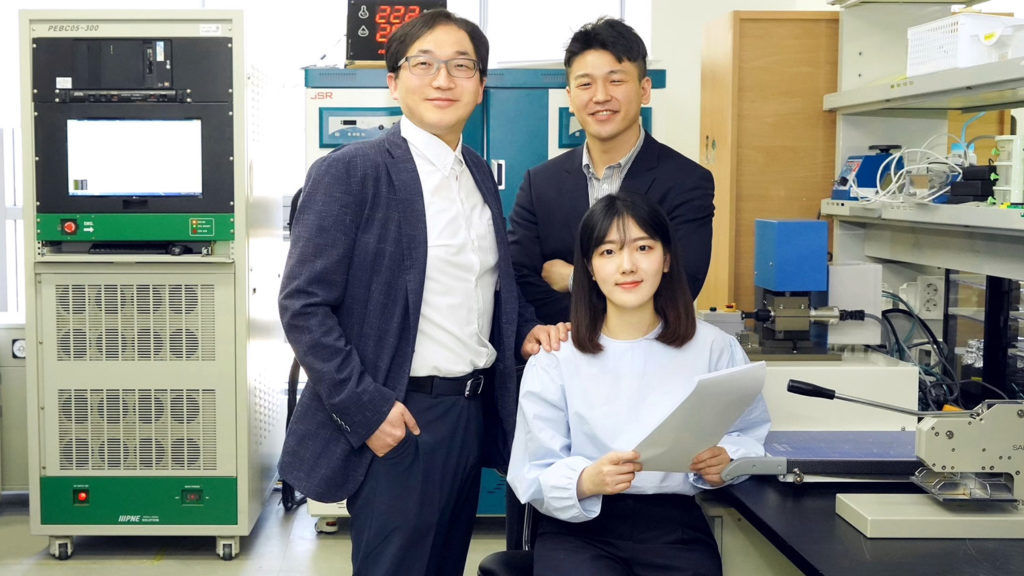The traditional lithium-ion batteries (LIBs) that are widely used in electronic devices are falling out of favor because researchers are beginning to view lithium metal batteries (LMBs) as a superior alternative due to their remarkably high energy density that exceeds LIBs by order of magnitude.
A research team from the Department of Energy Engineering at DGIST has developed an ultra-thin lithium metal anode manufacturing technology by adding a stabilizing additive to lithium metal powder. The anode manufacturing technology developed this time is expected to have a positive impact on the development of secondary batteries in the future as it can extend the service life compared to the existing anode.
An electrode made of lithium metal has a high theoretical capacity and a low reduction potential and has been attracting attention as an anode material suitable for increasing the energy density of a battery. However, lithium dentaries are continuously formed during the charging and discharging process, and the surface of the anode becomes non-uniform, resulting in performance degradation and battery ignition due to an internal short circuit.

“Li dendrite formation is strongly dependent on the surface nature of lithium anodes. A crucial strategy for LMBs, therefore, is to build an efficient solid-electrolyte interface (SEI) at the lithium surface,” explains Prof. Yong Min Lee from Daegu Gyeongbuk Institute of Science and Technology (DGIST), Korea, who specializes in battery design.
In response, the Korean research team adopted a novel approach in which they pre-planted lithium nitrate to the LMP itself during the electrode fabrication process, allowing them to fabricate ~150-mm-wide and 20-µm-thick electrodes, which showed a coulombic efficiency of 96%. Also, LMBs with LiNO3 pre-planted LMP (LN-LMP) demonstrated an outstanding cycling performance, with 87% capacity retention over 450 cycles, outperforming even cells with LiNO3-added electrolytes.
“We expect that pre-planting Li stabilized additives into the LMP electrode would be a stepping-stone towards the commercialization of large-scale Li-metal, Li-S, and Li-air batteries with high specific energy and long cycle life,” says Prof. Lee.
